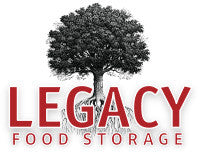
4 Ways to Prepare for Hurricane Season Before It’s Too Late

In support of the Red Cross’s official National Hurricane Preparedness Week, Legacy CEO Phil Cox offers the following tips for how to prepare for hurricanes right now.
Weather experts predict that this year U.S. states along the Atlantic will experience only two hurricanes, another “below average” season like last year’s. How strong they will be and how much damage they will create, however, is still up for debate. While it is difficult to know with what force these hurricanes will approach until they are already in action, past experience shows how imperative it is to prepare for this force of nature to prevent as much damage to your home and family as possible.
Below are four tips to help you prepare before it’s too late:
Know Evacuation Routes/Community Plans
The worst time to ask what the evacuation route is for your area is the moment you need to evacuate. Determine the best route now so you can head for it without delay. Also, be sure you know your community’s hurricane response plan. Familiarize yourself with the location of public shelters and what the community expects each citizen to do in the event of a hurricane.
Prepare Your Home
If possible, prepare all your windows with hurricane shutters. If not, close and board them up when you first hear a hurricane is approaching. Bring in any lawn furniture or other items that could be turned into a hazard by the wind. Turn off any propane or gas lines and unplug small appliances.
In addition, make sure you know your insurance policy’s coverage of flooding—if you even have one. Many policies don’t cover flooding, so it important to be prepared if your house does flood. In that vein, protect your home from flooding with sand bags and remove any valuables from basements and lower levels.
Store Food and Water
When disasters strike—natural or otherwise—it can be days before food is made available, either because business as usual is impossible to resume, or because it takes a while for aid to reach the disaster area. For this reason, it is imperative to prepare ahead of time the essentials you need for survival.
It is recommended that you store enough food and water for three days; however, the more you can store, the better. There are many different kinds of food storage including:
• Freeze-dried food
• Bulk storage
• Military MRE’s (Meal, Ready-to-eat)
Because you are preparing for an emergency situation, it is important to remember any food is better than no food. However, because you are planning ahead, store food that you know you and your family will eat. This one comfort could be one less stressor in an already stressful situation.
In addition, don’t forget to store fuel you may need to cook your food. When it comes to water, the Red Cross recommends storing one gallon per person per day for three days. This might seem like a lot, but when it comes down to it, it’s not very much, which is why storing even more water is an even better idea. You really can’t store too much.
Water storage is essential for proper hydration, for cleaning wounds, and for cooking food, which is why it is so important to store as much as you can. Water can be stored through:
• Store-bought bottled water
• Self-bottled water
• Mylar water pouches
In addition to storing water, it is important to store water-purifying products such as water purification tablets, water filters, and bleach. You can also purify water by boiling vigorously for 15-20 minutes.
Prepare To Evacuate
When it is time to evacuate, you will need to grab what you can and leave. Prepare or buy “bug out” bags that contain basic survival gear, including food, shelter, fuel, first aid, etc. Also, make sure you have plenty of fuel in your car so you’re ready to get out of town without worrying about refueling right away.
Store these bags in a place that is easily accessible so don’t have to go hunting for your emergency supplies—any wasted time can mean the difference between surviving an emergency, or not.
With these tips in mind, you are one step closer to being prepared for hurricane season and any dangers it presents.
The author of this post is Phil Cox, chief executive officer of Legacy Food Storage.
The post 4 Ways to Prepare for Hurricane Season Before It’s Too Late appeared first on Buy Emergency Food.

